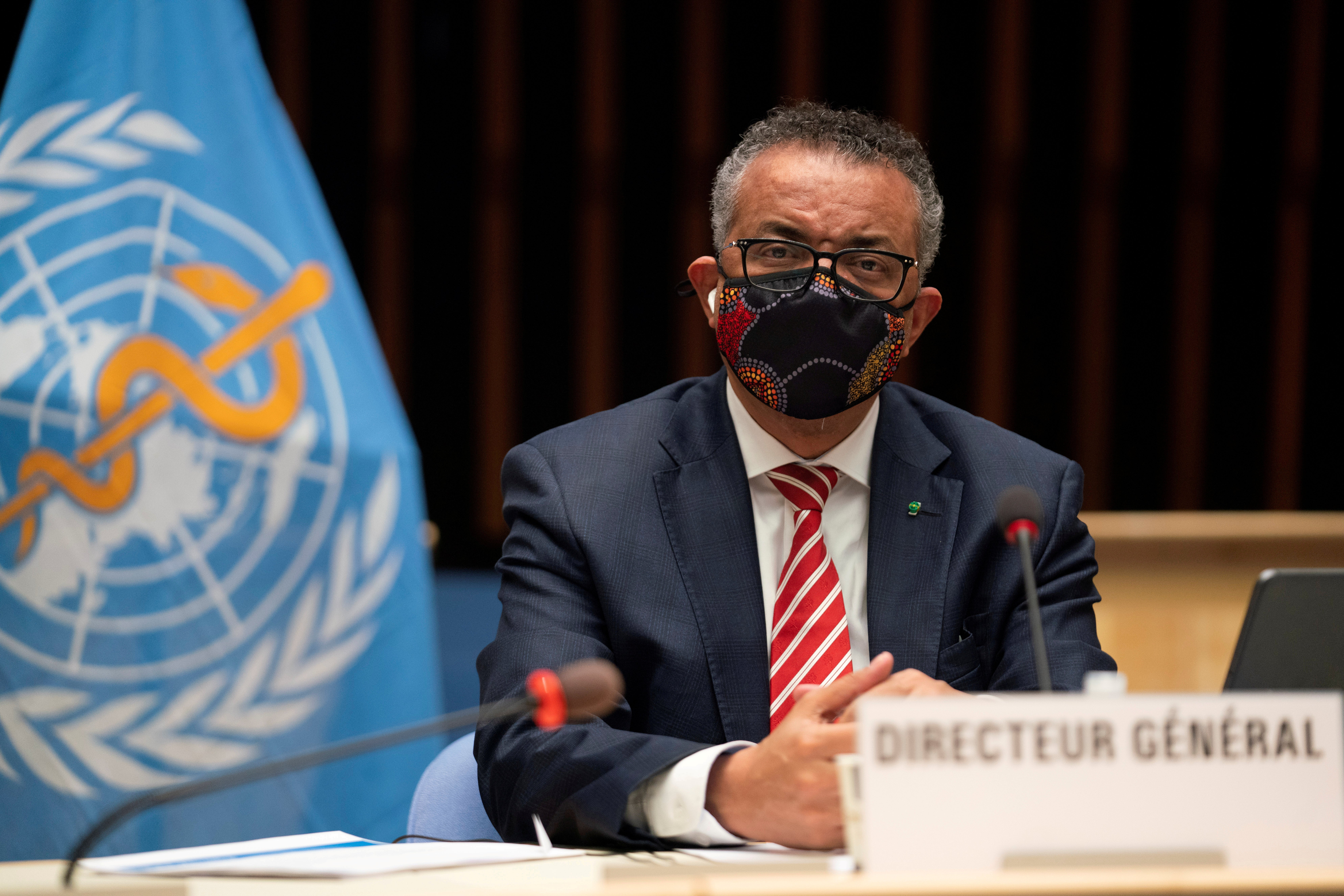Covid vaccine trial success means world ‘can dream about end of pandemic’, says WHO
Director-general warns vaccines ‘must be shared equally as global public goods, not as private commodities’

Your support helps us to tell the story
From reproductive rights to climate change to Big Tech, The Independent is on the ground when the story is developing. Whether it's investigating the financials of Elon Musk's pro-Trump PAC or producing our latest documentary, 'The A Word', which shines a light on the American women fighting for reproductive rights, we know how important it is to parse out the facts from the messaging.
At such a critical moment in US history, we need reporters on the ground. Your donation allows us to keep sending journalists to speak to both sides of the story.
The Independent is trusted by Americans across the entire political spectrum. And unlike many other quality news outlets, we choose not to lock Americans out of our reporting and analysis with paywalls. We believe quality journalism should be available to everyone, paid for by those who can afford it.
Your support makes all the difference.The world can “begin to dream about the end of the pandemic” following positive outcomes from coronavirus vaccination trials, the director-general of the World Health Organisation (WHO) has said.
Tedros Adhanom Ghebreyesus warned, however, that economically powerful nations must not trample on the poor and marginalised “in the stampede for vaccines”.
Speaking at a UN General Assembly session on Friday, he cautioned that “the path ahead remains treacherous” and that “vaccines must be shared equally as global public goods, not as private commodities that widen inequalities”.
The pandemic has shown humanity at “its best and worst”, he said, pointing to “inspiring acts of compassion and self-sacrifice, breathtaking feats of science and innovation, and heartwarming demonstrations of solidarity, but also disturbing signs of self-interest, blame-shifting and divisions”.
The extent of such scientific achievement became clear this week, as Britain’s medicines regulator approved Pfizer’s coronavirus vaccine, charging ahead of other nations in the race to start mass inoculation.
Meanwhile, EU and US regulators are still sifting through the same vaccine trial data and are yet to grant their seal of approval.
The WHO confirmed that they have received data from Pfizer on the vaccine and are reviewing it for “possible listing for emergency use”, which is a benchmark for individual nations to authorise distribution.
Dr Tedros has also said that he, like several other public figures, would happily take a coronavirus vaccine to build public confidence in the science.
He welcomed news that the US president-elect, Joe Biden, as well as Barack Obama, Bill Clinton and George W Bush have volunteered to receive an approved vaccine on camera.
He labelled them “influencers” and added: “I would be happy to do the same thing.”
But officials from the WHO have warned that the roll-out of vaccines will not on its own eliminate the virus, and have urged policy-makers and the public not to become complacent in their approach.
Dr Tedros lamented that despite years of warnings, many countries were unprepared for the pandemic and assumed their health systems would protect their people.
Those that reacted best to the crisis had experience responding to prior outbreaks of Sars, Mers, H1N1 and other infectious diseases, he added.
The WHO has faced sharp judgement for not taking a more prominent role in handling the pandemic and the director-general told the meeting that “clearly the global system for preparedness needs attention”.
He said a WHO commission established in September is reviewing international health regulations, and the organisation is also working with several nations to develop a pilot programme in which countries agree to regular and transparent reviews of their health preparedness.
Dr Tedros supports a proposal by the European Council’s president, Charles Michel, for an international treaty whereby the WHO would assess emerging infectious diseases in animals for the risks of transmission to humans, ensure alerts of health risks, and address financing needs.
He said this would provide “the political underpinning” for strengthening the global health sector.



Join our commenting forum
Join thought-provoking conversations, follow other Independent readers and see their replies
Comments